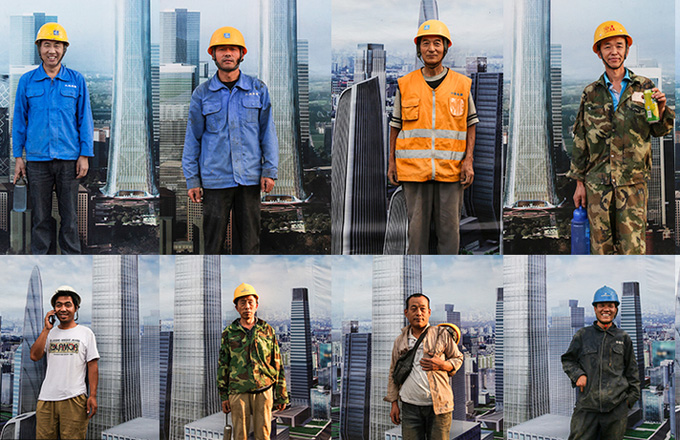How to feed China as farmers move to cities
BEIJING - China's seasoned farmers are busy searching for helping hands ahead of the spring planting, as their own children are heading to cities amid the country's urbanization wave.
Right after the Spring Festival in February, 62-year-old Liang Shuhua of Nong'an County, Jilin province, watched his two sons depart for work in cities, leaving about 1 hectare of farmland at home unattended.
Earnings from raising crops are not enough to keep young people at home and on the farm, even in Jilin, the northeastern province that is China's major producer of commercial grains.
"They want to move into the city and lead an urban life," Liang said.
Liang's two sons are among China's 263 million migrant workers, and as many as 163 million work in cities that are far from their rural homes.
China's urban population hit 711.82 million by the end of 2012, accounting for 52.6 percent of the country's total, up 1.3 percentage points from a year earlier, according to the National Bureau of Statistics.
Fast paces of urbanization and industrialization have put China's grain supply and demand in a "tight balance," according to analysts.
This was echoed in a blue paper released in January by the Chinese Academy of Social Sciences, which pinpointed the labor force as a key factor restricting China's agricultural development.
Urbanization consumes high-quality arable land and sucks up the rural labor force, pushing up labor costs, explained Han Jun, deputy chief of the Development Research Center of the State Council, China's cabinet.
Moreover, more grain is needed to produce animal feed to satisfy China's growing appetite for meat as the population's dietary structure changes, Han added.
At a key economic work conference in December, the central government vowed to take "active and steady" steps to promote urbanization in China, as it will help unleash the country's enormous consumption potential.
Many believe it will also be a key topic at this year's annual sessions of the National People's Congress (NPC), China's top legislature, and the Chinese People's Political Consultative Conference (CPPCC), its top political advisory body.
On the other hand, agricultural development also remains an important task on the central government's agenda. For ten years in a row, the first annual policy documents issued by the government have targeted rural problems.
This year, the document listed ensuring grain security and supplies of major farm produce as a top priority, while stressing large-scale farming and the development of modern agriculture.
Ren Kejun, head of Jilin's provincial agricultural committee and an NPC deputy, said large-scale agricultural operations are important for raising farmers' income and keeping them on farmland.
The government should take various measures to "modernize" farmers, said CPPCC member Li Chenggui.
Li, a Beijing municipal government official in charge of rural work, suggested the government encourage recent graduates and migrant workers to practice modern agriculture by providing them with relevant technological training.
In addition to moves to appeal to more farmers to grow crops, attention should be given to developing an efficient and intensive agricultural production system, said Li Changping, a scholar of rural issues.
Li said some farmers' excessive use of pesticides and fertilizers to increase yields has affected the quality of both the grain and soil.
"Grain security not only means the security of grain output, but that of grain quality and agricultural sustainability," Li said.
- NPC gives 31 seats to migrant workers
- Migrant workers happier with life, but sense of isolation remains
- Migrant workers happier, but sense of isolation remains
- Migrant worker deputies increase in NPC
- Migrant workers invited to prominent holiday gala
- China's rural migrant workers top 262m
- Rural migrant workers top 262 million
- Over 10,000 migrant workers visit Happy Valley for half-off

























